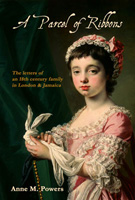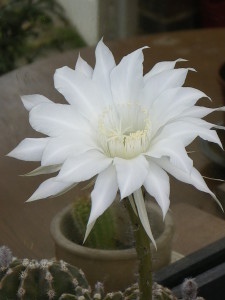I am ever the optimist when it comes to remembering what I have done. I plant seeds in my garden secure in the knowledge that when they come up I will remember what they are – mostly I don’t and mostly they grow anyway. By the time they bear fruit it is obvious what they were, but I don’t have any record of what I did to ensure that I have a good chance of doing the same again next year. Sometimes, as with the lovely cactus flower above, I get a total surprise, a present I didn’t deserve and did nothing to achieve beyond remembering to water it.
So it has been with genealogy. I am often in such a rush to find the end of the story that I merely sketch out a family tree sure that by the time I am ready to tell the story I will remember where I found the pieces of the jigsaw. Sadly, as with my garden, optimism is no substitute for keeping records!
When I began researching my own family history there were very few on-line resources and so apart from family records such as birth certificates I could be sure that a baptism record would have come from what was then known as the IGI, now familysearch.org and so felt no need to record where I had found the data. I made the beginner’s mistake also of recording the baptism date as the birth date unaware that a baptism might occur any time from the hour of birth to several years afterwards.
There is a suggestion that in Jamaica baptism was often left until the child was expected to survive (no theological fears of eternity in limbo troubled the parents). In fact the reason may have been the more prosaic one that the local vicar had just died of fever, or the child born on the plantation was so far from the centre of the parish that baptisms were done in batches when the vicar found time to visit; or the planter waited for the next Races or Assembly Meeting in Spanish Town to have his child baptised there.
As a historian I have always insisted on being able to prove any assertion by providing the sources, as a genealogist I am afraid I have generally fallen far short.
So time to do something about it. I am studying for a postgraduate certificate in Genealogical, Palaeographic and Heraldic Studies with the University of Strathclyde. It is taught on-line so no need to travel to Scotland, much as I would love to. Already I am learning how to document my sources carefully so that anyone coming after me will be able to check that I have made no mistakes and drawn no false conclusions. The downside of what really is a valuable discipline is that it slows me down – no longer can I rush ahead to sketch out the story trusting that when I reach the end of the road I will still be able to see where I came from! It is also time consuming and has taken me away from Jamaica and this blog.
So I hope you will forgive me if postings here are intermittent for a while. I hope that when I have time for full time research once again it will be more securely anchored and the flowers and fruits will be properly labelled.





